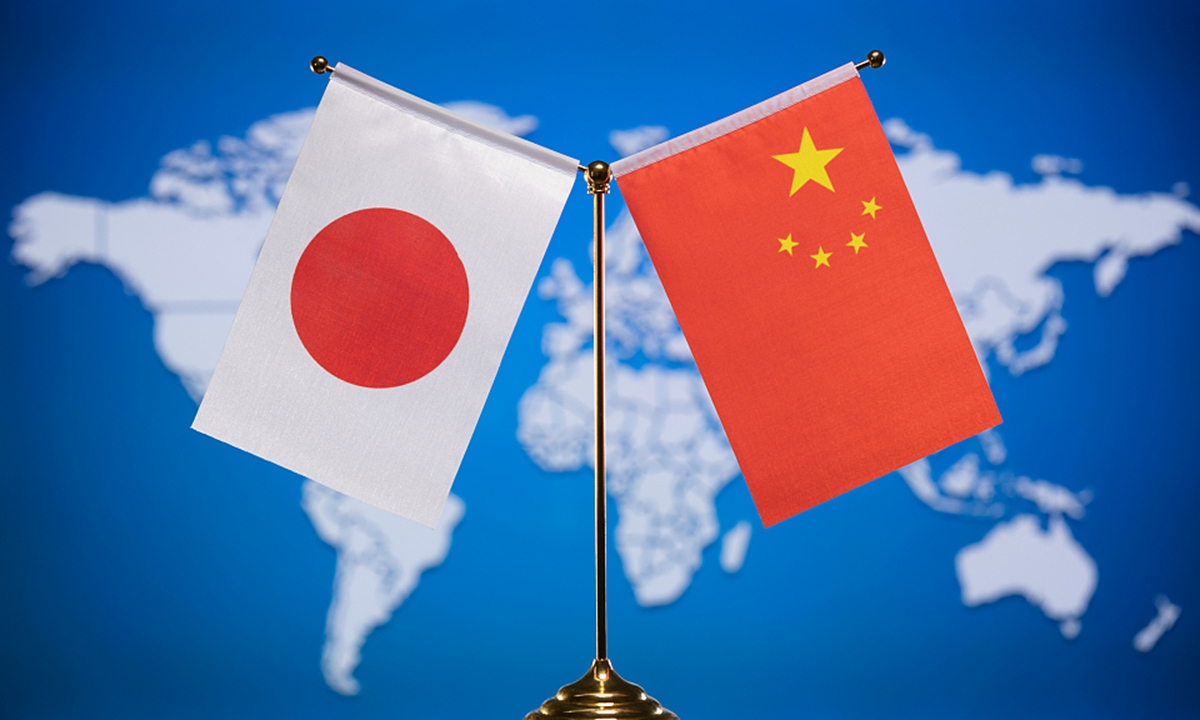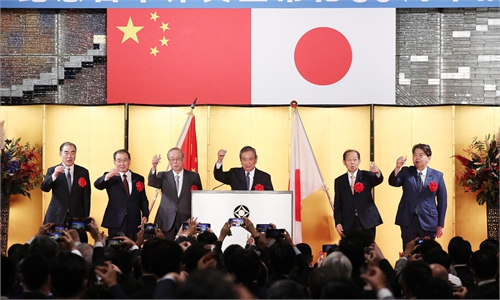Japan's passage of defense documents brings country away from track of post-war peaceful development: Chinese embassy

Photo: VCG
Japan's drastic adjustment of its defense policy raises the suspicion that the country is deviating from the track of post-war peaceful development, the Chinese Embassy in Japan said on Friday, after Japan passed three key defense policy documents.
China strongly opposes and has lodged solemn representations over Japan's defense documents, which listed "China as an unprecedented strategic challenge," labelled China's foreign and military activities are "severe concerns" of the international community and accused China of posing a "threat" to residents of the region with its military drills in the Taiwan Straits.
"Saying such things within the documents severely distorts the facts, violates the principles and spirit of the four China-Japan political documents, wantonly hypes "China threat" and provokes regional tension and confrontation," a spokesperson of the Chinese embassy said in a statement.
On Friday, the Japanese government passed three key national security documents - the National Security Strategy, the National Defense Program Guidelines and the Medium-Term Defense Program.
Observers called the documents on national security a major shift from Japan's defensive policy since the end of World War II, as they clearly state that Japan will possess counterstrike capabilities to strike enemy missile launch sites, acquire foreign-made missiles - with the US-made Tomahawk cruise missile in mind - greatly increase defense spending, and call China the "greatest strategic challenge."
Japan has a history of straying into militarism and committing aggression and crimes against humanity, which has brought disaster to the region and the world, the spokesperson said.
Japan has significantly updated its security policies and strengthened its counter-attack military capability. It is suspected that Japan is deviating from the track of post-war peaceful development, which is bound to raise the vigilance and opposition of peace-loving people, said the spokesperson.
China urges Japan to learn from its lessons and not be obsessed with using the so-called "China threat" to indulge in military expansion. Japan should return to the political consensus that China and Japan are "partners and pose no threat to each other," and avoid damaging bilateral relations and destroying regional security and stability, according to the spokesperson.
The spokesperson also said China's position on the Diaoyu Islands, South China Sea and Taiwan-related questions has been clear and firm. China's moves on those matters are entirely within the sovereignty of the country, and not something it will allow Japan to point fingers at.
Before the passage of the defense documents, Japanese media released the information that Japanese Foreign Minister Yoshimasa Hayashi may visit China later this month and meet with Chinese State Councilor and Foreign Minister Wang Yi.
China and Japan have been in contact over the visit, Wang Wenbin, China's foreign ministry spokesperson said on Friday.
Observers warned that although Tokyo is trying to ease tensions with Beijing through Hayashi's visit, Beijing should be highly alert to their provocative moves.
These changes will also have an impact on China-Japan ties, since Japan's China strategy will tilt more toward the US and NATO by classifying China as a "challenge," and bilateral relations will be developed in a confrontational tone, making it more difficult to handle conflicts, Da Zhigang, director of the Institute of Northeast Asian Studies at Heilongjiang Provincial Academy of Social Sciences, told the Global Times in an earlier interview.
Given the devastation caused by Japan's prior defense and military upgrading in history, particularly during WWII, the present policy change will have an impact on the whole area, as many nations will have to raise their military spending, leading to a new arms race in Northeast Asia, Da said.
The spokesperson from the Chinese embassy stated that China has insisted on a path of peaceful development, pursues a national defense policy that is defensive in nature and does not provoke or participate in any arms race.
China develops military forces that are compatible with the neighboring environment for the purpose of maintaining sovereignty, security and development interests, the spokesperson said.
China has been shouldering responsibility for regional and world peace and stability. What China's development brings to the world is opportunity, and the country should not be labelled as "threat," "challenge" or "coerce," the embassy stressed.
Global Times


